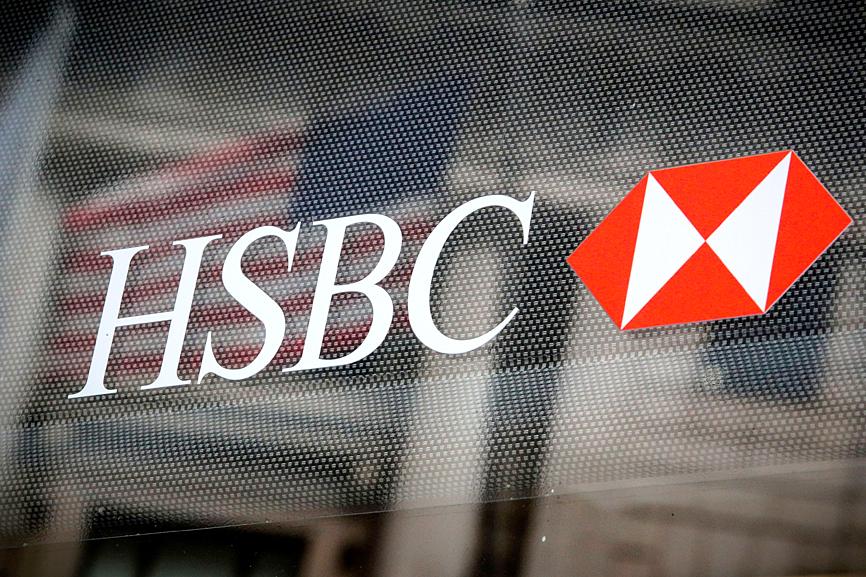HSBC Bank Taiwan Ltd (匯豐台灣商銀) has offered Gogoro Inc (睿能創意) a green loan to purchase energy-efficient products, marking the bank’s first green loan to an electric scooter manufacturer.
Although many people think green loans are exclusive to renewable energy developers, they actually have a broader application, and are extended to any business that can improve the environment, HSBC Taiwan commercial banking head Stanley Hsiao (蕭仲程) told the Taipei Times on Aug. 13.
“Whether a business can reduce carbon emissions or lower its fuel consumption are not the only criteria we use to determine whether to approve a green loan. We also take into account its deployment of energy-efficient technology as important and helpful to the environment,” Hsiao said.

Photo: Reuters
The latter makes a case for Gogoro, which does not directly use green energy to power its battery-swapping stations, but utilizes many energy-efficient components for its electric scooters, including a core component battery, he said.
To avoid having the funds used for just any environmentally friendly expenditure, the bank has required Gogoro to use the funds only for battery purchases and to routinely track the fund flow to check “if the money is being spent in the right place,” he added.
Hsiao did not disclose the size of the loan extended to the electric scooter maker due to a confidentiality agreement, saying only that the figure would be in the middle level of all green loans or sustainability-linked loans HSBC Bank Taiwan has offered.
The bank has also provided green loans or regular corporate loans to local suppliers of electric vehicle maker Tesla Inc, but the loan to Gogoro is the first to an electric scooter maker, he said.
Hsiao said he holds a conservative outlook for the growth of green loans, because compared with sustainability-linked loans, green loans have stricter rules for banks and their corporate clients.
Sustainability-linked loans allow loan-takers to use the funds for general corporate purposes, not just green projects, he said.
Given the stricter criteria for green loans, banks need to carefully communicate to clients what kinds of projects they can spend the money on and to keep on following their progress, he said.
That partly explains why sustainability-linked loans have grown faster than green loans in Taiwan, he said.

In Italy’s storied gold-making hubs, jewelers are reworking their designs to trim gold content as they race to blunt the effect of record prices and appeal to shoppers watching their budgets. Gold prices hit a record high on Thursday, surging near US$5,600 an ounce, more than double a year ago as geopolitical concerns and jitters over trade pushed investors toward the safe-haven asset. The rally is putting undue pressure on small artisans as they face mounting demands from customers, including international brands, to produce cheaper items, from signature pieces to wedding rings, according to interviews with four independent jewelers in Italy’s main

Japanese Prime Minister Sanae Takaichi has talked up the benefits of a weaker yen in a campaign speech, adopting a tone at odds with her finance ministry, which has refused to rule out any options to counter excessive foreign exchange volatility. Takaichi later softened her stance, saying she did not have a preference for the yen’s direction. “People say the weak yen is bad right now, but for export industries, it’s a major opportunity,” Takaichi said on Saturday at a rally for Liberal Democratic Party candidate Daishiro Yamagiwa in Kanagawa Prefecture ahead of a snap election on Sunday. “Whether it’s selling food or

CONCERNS: Tech companies investing in AI businesses that purchase their products have raised questions among investors that they are artificially propping up demand Nvidia Corp chief executive officer Jensen Huang (黃仁勳) on Saturday said that the company would be participating in OpenAI’s latest funding round, describing it as potentially “the largest investment we’ve ever made.” “We will invest a great deal of money,” Huang told reporters while visiting Taipei. “I believe in OpenAI. The work that they do is incredible. They’re one of the most consequential companies of our time.” Huang did not say exactly how much Nvidia might contribute, but described the investment as “huge.” “Let Sam announce how much he’s going to raise — it’s for him to decide,” Huang said, referring to OpenAI

Nvidia Corp’s negotiations to invest as much as US$100 billion in OpenAI have broken down, the Wall Street Journal (WSJ) reported, exposing a potential rift between two of the most powerful companies in the artificial intelligence (AI) industry. The discussions stalled after some inside Nvidia expressed concerns about the transaction, the WSJ reported, citing unidentified people familiar with the deliberations. OpenAI makes the popular chatbot ChatGPT, while Nvidia dominates the market for AI processors that help develop such software. The companies announced the agreement in September last year, saying at the time that they had signed a letter of intent for a strategic